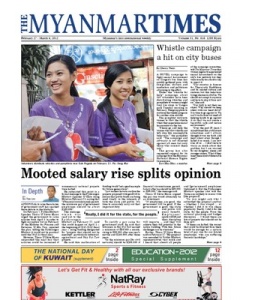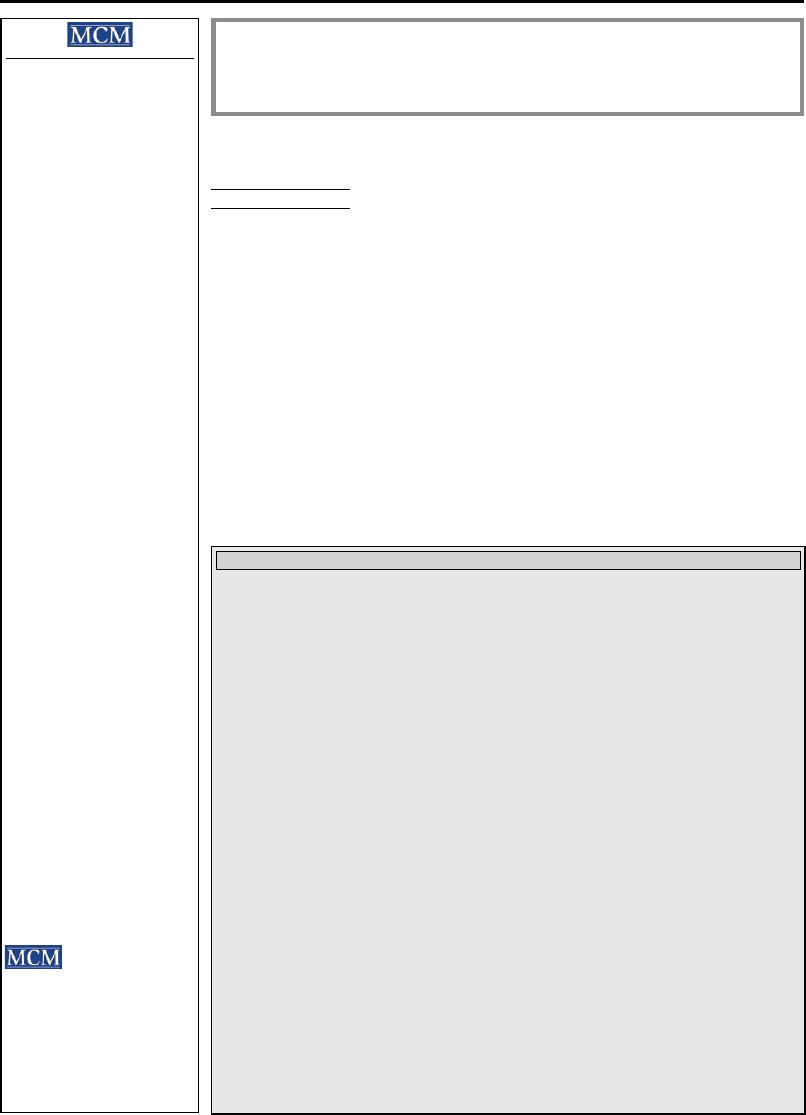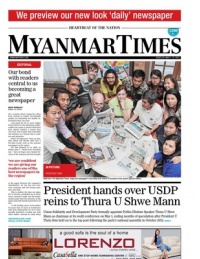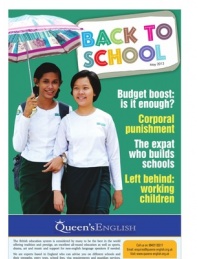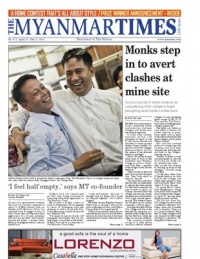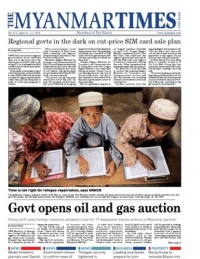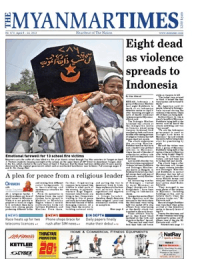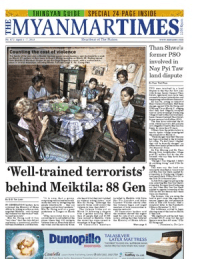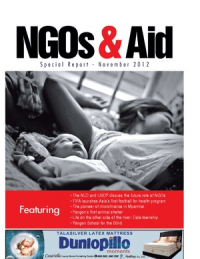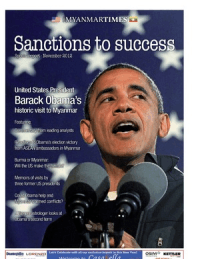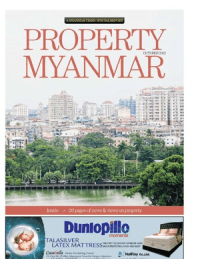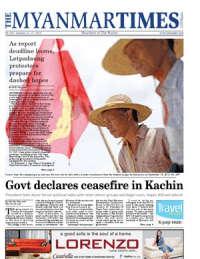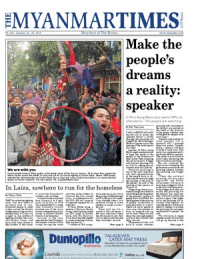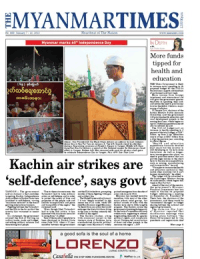myanmar
times
t H e
February 27 - March 4, 2012
Myanmar’s first international weekly Volume 31, No. 616 1200 Kyats
A PROPOSAL to raise the salariesof government staff has sparkedfierce debate in the hluttaws.On February 7, Pyithu HluttawSpeaker Thura U Shwe Mannurged the government to raisesalaries from April 1 in order tofight corruption but on February16 the Minister for Finance andRevenue, U Hla Tun, rejectedthe plan, telling the PyidaungsuHluttaw it would not be practicaluntil the 2013-14 fiscal year.However, Thura U Shwe Mannresponded the next day thatsalaries could be increased if unnecessary national projectswere halted.He reiterated this point in aformal message to the PyidaungsuHluttaw Speaker U Khin AungMyint on February 21, saying that“if financial circumstances permit,the minimum pay of governmentemployees should be aboutK100,000”.The message,which wasread out to thePyidaungsuHluttaw on February 22, saidthis could happen on April 1 –the beginning of 2012-2013 fiscalyear – using funding designatedfor “projects that should not beexecuted”, particularly industrial,agricultural and Nay Pyi Tawprojects.He said this reallocation of funding would “set a good examplefor future generations”.“Law makers have to analyse theprojects proposed with goodwill toensure that public funds are beingused wisely, in the interests of both the state and public. It’stime to accurately carry out thatimportant duty.To justify a pay raise forgovernment staff, he said thatlabourers in Nay Pyi Taw earneda minimum of K60,000 a month,rising to K90,000 after one year’sservice and K150,000 after threeyears.“So the minimum pay [for civilservants] should be K100,000 if financial circumstances permit.Salary after tax should be K80,000or K90,000,” the message said.Thura U Shwe Mann arguedthe pay rise would ultimately bean investment.“If employees are good, thegovernment will be good. If thegovernment is good, the stateand public willenjoy benefit.Employees’spirits will lift andtheir disciplinewill improve … and they willachieve their full potential in thenation building. With this, futurechallenges can be overcome.”Earlier, Thura U Shwe Mannsaid on February 17: “My proposalwas seconded by Pyithu Hluttawrepresentatives very much andI heard that almost all peopleand [government] employeeswelcomed it. But the PyidaungsuHluttaw speaker also told me:‘Some are unlikely to concur with[the proposal]’.“So you might ask why Isubmitted the proposal anyway– whether I was stupid … orwhether I did it to win cheappopularity. Really, I did it for thestate, for the people. From thenational planning and budgetdiscussion … I found there arelots of projects that should not bedone now.“If these are halted, the moneythat could be diverted from themwould be enough for a certainlevel of pay rise for our [state]employees, who are sufferingfinancial hardships.”
Mooted salary rise splits opinion
More page 4More page 4
‘
Really, I did it or the state, or the people.
’
Whistle campaigna hit on city buses
By Cherry Thein
A NOVEL campaign tofight sexual harassmenton Yangon’s bus lines hasquickly gathered pace, withcompanies, drivers andconductors and politiciansall joining in the effort.Under the “whistle forhelp” campaign, about150 volunteers have beendistributing whistles andpamphlets to women at eightbusy bus stops in Yangoneach Tuesday morning inFebruary. The group plans tocontinue the weekly programfor another nine months.The pamphlet instructswomen to blow the whistlewhen they experience sexualharassment on the bus.“Please go and help thewomen who blow whistle andlet’s stop this unacceptablebehaviour,” the pamphletsaid. “The campaign andadvocacy is not directedagainst all men but onlythose who commit theseacts.”The group has alsorequested support for itscampaign from the MyanmarNational Human RightsCommission.Daw Htar Htar, a memberof the campaign committee,told
The Myanmar Times
thatwomen regularly experiencedsexual harassment on thecity’s bus network but theywere usually too afraid or shyto report it.“Our country is famousfor Theravada Buddhismand its related culture andcustoms but this behaviourbrings shame on all of us. Weshould not accept it anymoreand have to stop it from nowon,” she said.“Our body is not their sexobject. Why should we keepsilent with our head down?It is time to go against it. Wecan’t work alone but need allhelping hands to go againstit so that we can create abeautiful, safe and secureenvironment.”“Over the past 30 years Imyself faced this awful eventsometimes and I alwaysthought it was my fault, andkept silent even though Ihated it so much. I am nowover 40 so … I don’t have toworry as much about thisproblem but I am worriedfor my daughter, nieces andyounger sisters. What if theymeet these kind of detestablemen?”
Volunteers distribute whistles and pamphlets near Sule Pagoda on February 21.
Pic: Seng Mai
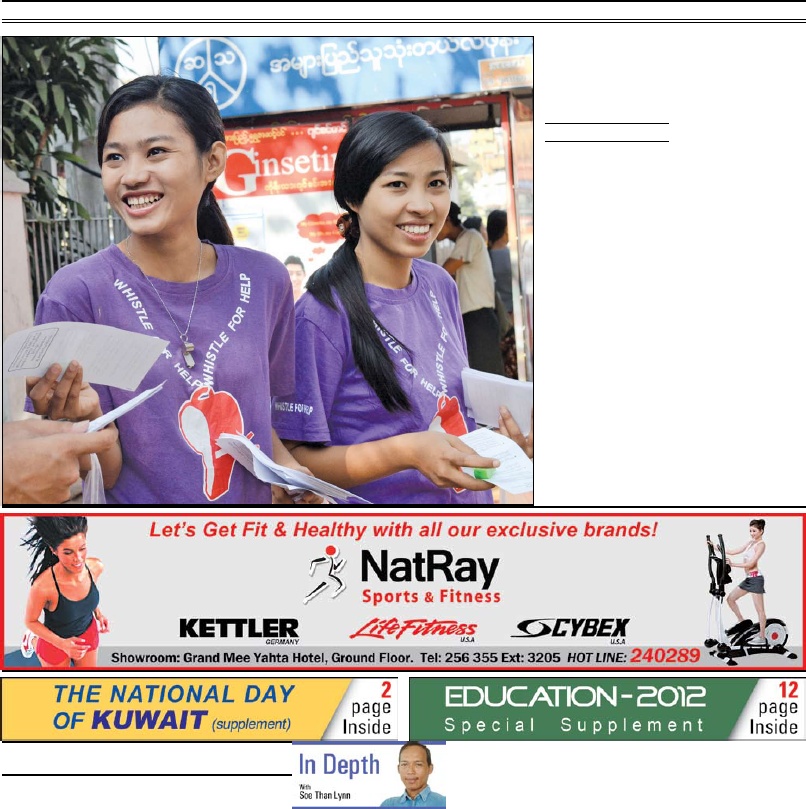




C
omment
the
M
yanMar
t
iMes
2
February 27 - March 4, 2012
The Mail Box
Got something to say? We want to hear from you. Address all correspondence to the Editor,
The Myanmar Times
(English). We endeavour torespond to all correspondencei n a timely manner.Address: 379-383, Bo Aung Kyaw Street, Kyauktada township, Yangon. Telephone: (+951) 392-928, 253-642. Fax: (+951) 392-706Email: your.myanmar.times@gmail.com
Dear editor,I AM an English teacher who readwith interest the car substitutionplan initiated by the governmentto get old cars off the road andreplaced with newer ones. Mymain interest in this is really thelicence or number plates that aredisappearing. As a collector of oldplates, I have taken photos of someof the old ones, two- and three-digitplates and even been able to obtainsome of these old plates for mycollection but I imagine that mostof these old plates will vanish withthe cars. I wonder if any reader outthere also has a similar interest,and/or knowledge, as ideally I wouldlike to find the history of all types of plates issued here from the time of the British in Myanmar up to thepresent day. Anyone who would bewilling to help is welcome to contactme on aussipl8s@gmail.com.Thanks in advance for any help oradvice given.Tr Pete, Yankin
By Dr Nyi Win Hman
THE 21
st
century is oftendescribed as the “knowledgecentury”. Information,communication, educationand knowledge are pervasivein the developed world.Knowledge also seemsto be a prerequisite fornational wealth and power.Of course, there are otherfactors, such as naturalresources, geography andhuman resources. However,education is perhaps themost crucial factor inlifting people out of severeimpoverishment and livesof disadvantage. Given thateducation is the backboneof development, ourcountry and people wouldbenefit immensely froman improved and reformededucational system.We all know that reformsneed to be implementedfrom the most basic primaryeducation level to the highesttertiary stages. Myanmarhas always suffered as aresult of obsolete teachingand learning methods,whereby teachers spoon-feedstudents who in turn fallprey to a process of passivereception, rote learning andmaterial regurgitation – amost meaningless activity.From the most basic to thehighest levels of education,we need to develop activestudent participation.Teachers should only providestimulation and guidance,encouraging the learner tobe self-motivated in theirsearch for knowledge andacquiring skills.The entire educationalprocess across thespectrum should be gearedto developing criticalthinking and reasoning,which are the essence of education. To achieve thiswe will need to develop anew breed of teachers, whowill require training in themost up to date teachingmethodologies.But the media, from printto broadcast and online,plays a significant andcrucial role in provisionand dissemination of information to the public.In much of the developedworld mass communicationpermeates society. As thepublic usually also havea sound basic education,they are generally quitewell informed about social,economic and political affairsof their own country as wellas those of others. Whilethere may be a substantialamount of material ontelevision in the developedworld that you couldconsider worthless froman educational perspective,there is also much that isintellectually stimulating.The availability of computers and access toreliable and fast internetconnectivity is essentialin a developing country.The internet is a valuableresource for acquisition of information and knowledgeand as a result manycountries in the world,especially developingnations, are vying toprovide the most reliableand fastest internet access. Again, there may be muchthat is not intellectuallystimulating, but the internetis an invaluable resourcefor obtaining informationand knowledge, as well asconducting business.It is understandable thatpeople who are very poor willusually often be preoccupiedwith simply making enoughmoney to get by each day.The middle and uppersocioeconomic strata of oursociety may also devote theirlives more or less entirelyto the acquisition of moneyand wealth. It seems thatbecause Myanmar has laggedbehind other countries – andparticularly our neighbours– in socioeconomicdevelopment, its middle classis overly focused on catchingup to them in terms of consumerism. It is probablyfor the same reason that wetend to be quite ostentatiousin displaying our possessionsand wealth. However, allthis seems to be at theexpense of other valuablequalities in life, such as theacquisition of knowledge. If our society, and particularlythe elites, lacks educationand knowledge, it couldhave a serious detrimentalimpact on the people as awhole. We must be aware of our own social and culturalvalues and question whetherour society places a highpremium on knowledge. A related but importantissue is whether thegovernment and the countrycan utilise the professionalhuman resources that existboth inside and outsideour country. The standardand quality of humanresources in our countryhas deteriorated to a greatdegree. This is a deficiencythat needs to be addressed;if the huge body of well-educated expatriates couldsomehow be utilised, itcould facilitate developmentof our country.There is an urgent needto rectify the deficiencies ininformation, communication,education, and knowledgethat exist in Myanmar. Inorder to fulfil this urgentneed, a radical reformationof the entire educationalsystem is necessary. Weneed to have conviction thata focus on education willbe the primary avenue todevelopment and narrowingthe vast gap that existsbetween us and ourneighbours. However, if themiddle and upper classesadopt the attitude thatacquiring wealth at anycost is the way forward, atthe expense of a focus oneducation, then we cannotexpect our poorer citizens toescape poverty or contributeto the development of oursociety and country.This choice – and thesubsequent way forward – isour responsibility.(
Dr Nyi Win Hman is a former associate professorof psychology at YangonUniversity and British-trained clinical psychologistwho has worked in Malaysiaand Australia and taught inSingapore.
)
Myanmar and theknowledge century
CHINA and Vietnam arethe twin planks that keepLaos afloat.Barely a month goesby without leadershipdelegations from Beijingand Hanoi descending on Vientiane, as they bothhave already done thismonth.That these visits areinvariably fruitful is nosurprise. Indeed, it is hardfor anyone to visit Laoswithout falling in love withthe place.The problem comes whenyou stay longer and try toconduct business or otheractivities that demandconcerted effort and adeadline.For, by and large,Laotians reject theobsessive urge to seekmaterial gain as fastas possible that drivesmodern life across the restof the region.It appears to havealways been that way. Andmany hope it always willbe.Back in 1960, however,United States PresidentDwight Eisenhower did notthink so and he urged hissuccessor John Kennedyto focus on Laos, which,he claimed, was “the corkin the bottle” of Southeast Asia.More disastrouslymisguided advice is hardto imagine, and it causedKennedy tremendousheartache.For rather than a cork,Laos is more like the dregsat the base of an old bottleof uncertain vintage that,for safety’s sake, is best leftundisturbed.Back then, though,Kennedy did not knowthis and was naturallyperturbed, so he askedhis man in Vientiane fora reading of the situationand of the folks there. Ambassador WinthropBrown cabled back:“They’re charming,indolent, enchantingpeople. They’re just notvery vigorous.”Hardly revelatory, butthen Brown did add thatPhoumi Nosavan, therightwing military thugbacked by the US CentralIntelligence Agency, wastotally useless and lackedbattlefield experience.Two months later, uponreceiving another similarcable, Kennedy fumed:“General Phoumi is a totalshit!”He was. But he was alsovery proficient at settingup gambling and opiumdens to make up a shortfallin revenue after Kennedybelatedly cut off aid inFebruary 1962.The income from hisillicit activities onlybought Phoumi a shortrespite and three yearslater he was forced intoexile in Thailand, wherehe died in 1985, asunremembered as mostLao leaders – even thepresent ones.We all know PrimeMinister Hun Sen. Andalready his relativelynew counterparts likeMalaysia’s Najib Razak,Myanmar’s U Thein Seinand Thailand’s YingluckShinawatra and are wellknown.But General ChoummalySayasone? Who is he?Well, as his officialbiography reveals,Comrade Choummaly joined the revolution in1954 and rose through themilitary ranks to becomehead of the armed forces.Then, after helpinghis fellow Pathet LaoCommunists seize power in1975, he continued risingand became head of theparty and state presidentin 2006.He’s now been in chargefor nearly six years, yethardly anyone, except hiscolleagues in Beijing andHanoi, recognises him.That may explain whythose regular and highlysignificant visits also gomostly unnoticed.Earlier this month,for instance, a Chinesedelegation led by formerShanxi governor YuanChunqing came to reaffirmmajor developmentassistance, like the high-speed rail project to linksouthern China with Vientiane. And this year, SoochowUniversity, China’s oldestprivate varsity, will openthe country’s first overseascampus in Laos costingUS$25 million.Not to be outdone, Vietnam’s PresidentTruong Tan Sang arrivedin Vientiane soon afterto celebrate bilateralsolidarity and endorsethe “special relationship”between the two countries.Last month, Vietnam’sLong Thanh Golf Investment & Trade Coagreed to build Laos’sfirst special economiczone, which will boostHanoi’s current $3.6billion of investments in itsneighbour.China remains Laos’slargest investor, but Vietnam is its secondlargest – and its primepolitical overlord. The Americans are nowhere insight.Indeed, astonishingly,Laos has never hosted acabinet-level official fromthe US. Although, when youread back over thoseambassadorial cables, it ishardly unexpected.The Lao people may beindolent and lack vigour,but they’re not dumb.
United States nowherewhen it comes to Laos
A MYANMAR Medical Associationday care centre for elderly doctorswill be free of charge after paying anannual membership fee, an associationspokesperson said last week.Dr Khin Maung Lwin, managingdirector of Fame pharmaceuticalcompany, will pay the monthly salariesof the employees at the centre so thatthe service will be free for all associationmembers. Membership of the associationis K150,000 a year.“The members can have free servicesand facilities now. We welcome moredonors [to support] facilities formembers,” she said.Support Group for Elderly Doctors(SGED), a non-profit organisationformed under the aegis of the MyanmarMedical Association, opened the centreearlier this month.“The purpose of opening this centreis to look after elderly people duringthe day, when their families are oftenaway at work,” said Dr Kyi May Thein,an executive member of SGED.“The elderly may develop depression if they are alone. They should have socialconnectedness with others so they don’tget lonely,” she added.The centre is initially targetingelderly doctors aged 70 and over buthopes to expand to other elderly peoplelater on. In Myanmar, about 8.4 percentof the population is above 60 years of ageand SGED president Professor MyintMyint Khin said it was important theirneeds were met.“Changing family structure andother social and economic changes have[resulted in] elderly people living alone,”said Professor Myint Myint Khin, whois in her 80s.“My feelings while living alone aren’tgoing to be different from my peers – Iknow the needs of elderly people.” As well as social interaction, visitorsto the centre will have access to freephysical examinations and medicalcare. Physiotherapy treatment andelectrocardiograms will cost extra butwill be subsidised and cheaper thanprivate clinics, organisers say.Those who want to register or donateto the group can contact SGED on (01)394-229 or 09-7302-8186. The supportgroup is a non-profit organisationformed in 1999 and has more than 600members, mostly elderly doctors.–
Yamon Phu Thit
MMA reduces fees at centre for elderly
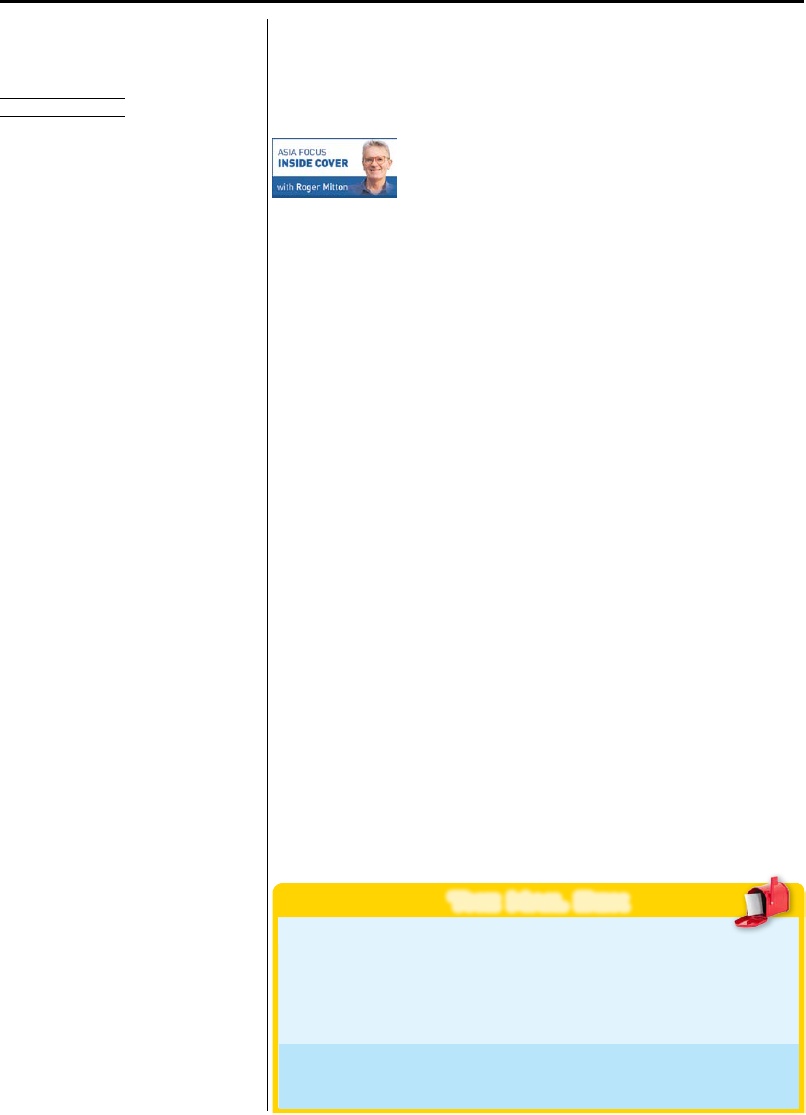
n
ews
3
the
M
yanMar
t
iMes
February 27 - March 4, 2012
By Noe Noe Aung
DISPOSSESSED farmersin a rural part of Yangon’sMingalardon township arepreparing to take their fightagainst one of the country’slargest firms to the courts.The farmers from ShweNa Thar village say theyonly want their land backand are not seeking anycompensation from theZaykabar company, whichacquired the land to construct Yangon Industrial Zone 4.Starting from February2010, the companyacquired 845 acres from 71households with the helpof two government officialsin the village. About 100acres remain in the handsof residents.Some of the farmers alreadyreceived K300,000 each incompensation but they told
The Myanmar Times
onFebruary 21 that they weretricked into accepting themoney by the two officials.“At first we were told thatour land was being takenfor a government project. All this farmland is ownedby government and if thegovernment wants it, weknow we have to give itback. So we gave it to themwithout complaint,” saidfarmer Daw Tin Sein.“I am still keeping myother five acres. I didn’t giveit to them and didn’t take anycompensation,” she added.Others have been leftwith nothing, however.“I gave my 16 acres of farmland to them. The futureof our family depends on thatland. I don’t want anythingfrom [Zaykabar] except myfarm,” said Daw Tin Yi, 48.Ma Hnin Nandar, 38, saidthat the company boughther farmland, which wasfull of toddy palms, forK5000 a tree.“The company cut downmy plants but I still haven’tgot my money,” she said.“For my children’seducation and health weneed money and we canget money only from ourfarms. I can’t do anythingexcept farming. I wantmy land back. Unless thishappens my children willhave many difficulties fortheir education.”In mid-2011, the companybegan breaking downembankments, blockingcanals and laying concreteroads. Farmers said thecompany told them onJanuary 18 to move out byJanuary 24 and that some of their land had already beensold to unknown buyersfrom outside Mingalardontownship.U Nay Myo Wai, chairmanof the Peace and DiversityParty, which is based inMingalardon township andhas been helping the farmersraise awareness about theirplight, said existing lawsprohibited the company fromselling the land.“According to section fourof the Act of Nationalisationof Farmlands (1953),farmland is not allowed tobe bought or sold betweencivilians. And also the Law of Rental Lands for Cultivation(1963) states that civiliansare not allowed to do otherthings with farmland besidesagriculture,” U Nay Myo Waitold
The Myanmar Times
.“If the company has soldthe farmland to others, thisis not legal under the law,”he added.U Nay Myo Wai saidthe farmers had initiallytold him that their landwas acquired by thegovernment. “But later Icame to understand that itwas not the government – just a private company thattook advantage of their lackof knowledge. So I decided toget involved,” he said.The notice the companydistributed to farmers onJanuary 18 gave someclues about the situation,he said.“According to the papersattached to the notice, thegovernment didn’t give thefarmland to Zaykabar for anindustrial zone. Secondly, Inoticed that the governmenttold the company to run anagriculture business if theygot the farmland and thirdlythe company was told to giveback the land to farmers if they don’t do agriculture onthis farmland. And I noticedthat the company reportedto the government that thefarmers do not want to farmanymore because they wantto do another business andthat’s why they gave uptheir farmland. But that’stotally wrong,” U Nay MyoWai said.The farmers are nowpreparing to take legalaction against the companybut said they would drop thecase if the company returnsthe land.“We are lost. Unlesswe don’t get back ourfarmland, we will starve,”one Mingalardon farmersaid.The farmers said thatit appeared as thoughZaykabar had suspendedits project.Officials from Zaykabartook the unusual step of holding a press conferenceto deny the farmers’allegations.The company’s generalmanager, Daw Mi MiThein Tan, told reporterson February 14 that theindustrial zone project hadgovernment support.“After March 2011 wecontinued our projectwith the permission of thegovernment. And we gotthat permission throughthe government procedure,”Daw Mi Mi Thein Tansaid. Another company officialsaid it was not possiblefor Zaykabar to do theindustrial zone on its own.“We got this agreementand allowance afterreporting step by step toauthorised people in thegovernment. This is a jointproject between Zaykabar,the Ministry of Constructionand the Department of Human Settlement andHousing Development,” hesaid.The official said thecompany was following theorders of the Yangon Regiongovernment.
A farmer from Shwe Na Thar village in Mingalardontownship.
Pic: Boothee
Company lied about projectfor industrial zone: farmers
By Douglas Long
THE cancellation of ananticipated round of supportby the Global Fund to Fight AIDS, Tuberculosis andMalaria will result in a lackof new funding opportunitiesto expand treatment forHIV/AIDS in Myanmar untilat least 2014, according to areport released last week byMédecins Sans Frontières.The report, titled
Livesin the Balance
, said that in2010 fewer than 30,000 of the estimated 120,000 HIV patients in need of anti-retroviral treatment (ART) inMyanamr were receiving it.It said that up to 20,000people living with HIV “die annually in Myanmarbecause of lack of access tourgent lifesaving [ART]”.By the end of 2011Médecins Sans Frontières(MSF), the biggest supplierof ART in Myanmar, wasproviding the treatment tomore than 23,000 patients at23 clinics nationwide, withan additional 6000 patientsexpected to be enrolled bythe end of this year.Global Fund’s Round 9,now underway, is expectedto help 50,000 people access ART by 2015, while Round11, which was slated tostart in that same year buthas now been cancelled,“would have paid for 46,500additional patients on ART, helping to bring totalcoverage close to 100,000 by2018”, the report said.Peter Paul de Groote,MSF-Holland’s head of mission in Myanmar, told
The Myanmar Times
onFebruary 23 that the reportwas intended to send a“straightforward message”.“At the end of the day it’sreally about people in needof treatment. And for thatyou need money, and in thiscase you need internationalmoney. The main thing wewant to highlight here is thatwe have people who, if youdon’t give them treatment,they will die,” he said.The World HealthOrganisation recommendsproviding ART to patientswith CD4 counts of lessthan 350, but in Yangon andKachin State MSF can treatonly to those whose levelshave dropped below 150. CD4is a measure of the immunesystem’s suppression.“It’s just a very simplesupply and demand question.We’re overwhelmed bythe people who presentthemselves, so we have tomake difficult choices aboutthe number of people we cantake on,” Mr de Groot said.Last week’s report alsosaid that some Round 11funding had been slatedto improve coverage forthe treatment of multi-drug-resistant tuberculosis(MDR-TB).Tuberculosis is the leadingcause of death for HIV patients in the world, andMDR-TB “has been shown tobe almost twice as commonin TB patients living withHIV”, the report said.In the context of its fightagainst HIV, MSF providedtreatment to about 3000 TBpatients in 2011, about 70 of whom were MDR-TB patientsin Yangon and Mandalay.“Round 11 was intendedto target new geographiccoverage for MDR-TB, withplans for treatment centresin all states and regions,”the report said. “The planwas to reach a further10,000 MDR-TB patientsover five years.”
Lives in the Balance
calledon donors to help ensure theplanned scale-up of HIV,TB and MDR-TB treatmentwent ahead by increasingfunding to Myanmar andthe Global Fund.“From a donor perspectiveit just makes sense to put inmoney at a very early stagebecause you save lives,” Mrde Groot said. “If you starttreating people while they’remore or less healthy it willcost less, because now we’rewaiting until they’re so sickthat we have to put a lot of money in to treat them.”
Funding shortfallsthreaten expansionof HIV treatment
‘
I don’t want anything rom[Zaykabar] except my arm.
’
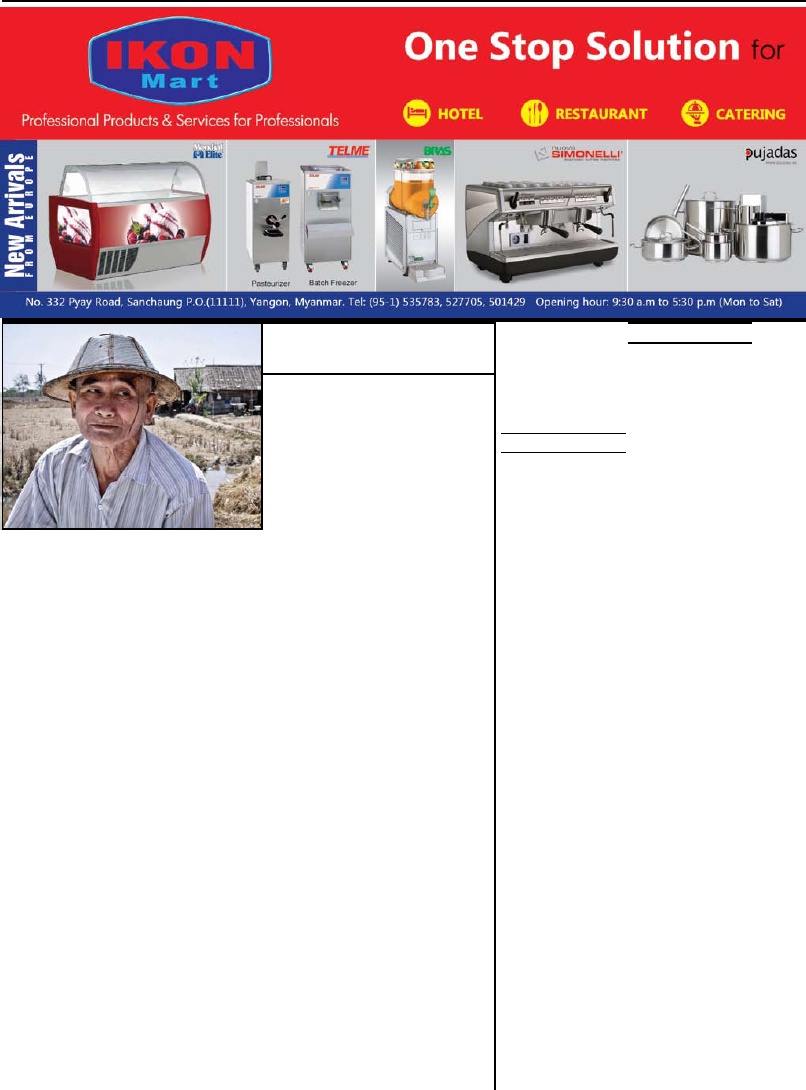





検索履歴:
結果00中00
00結果次の結果
p.
Notes
Post Note
